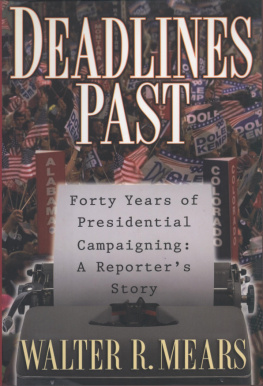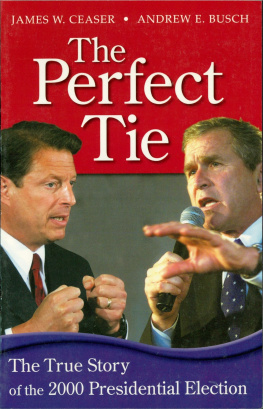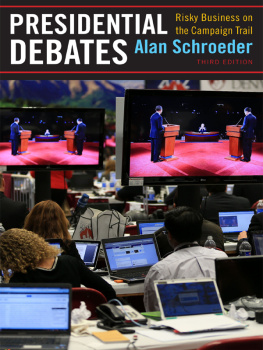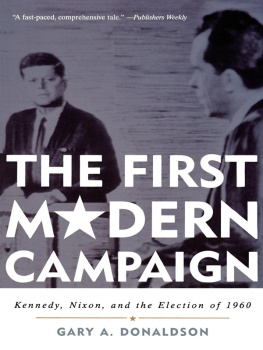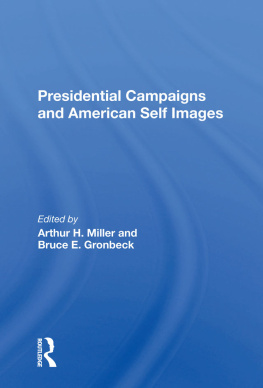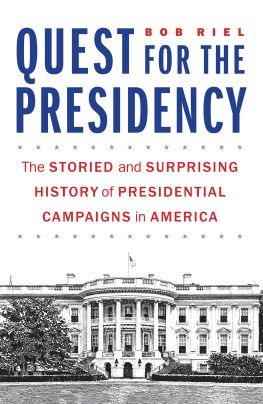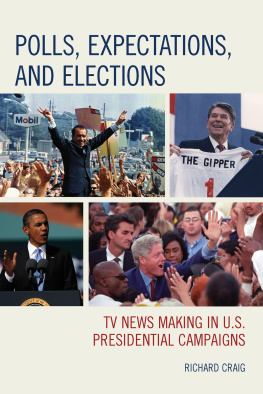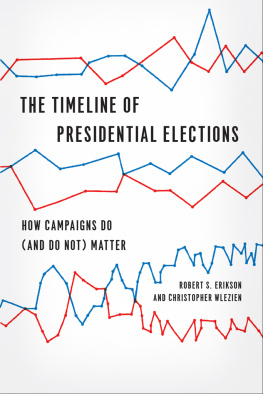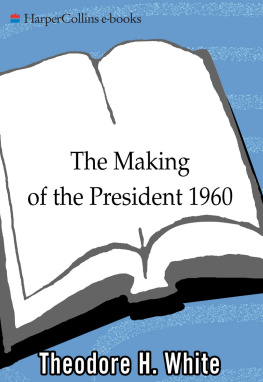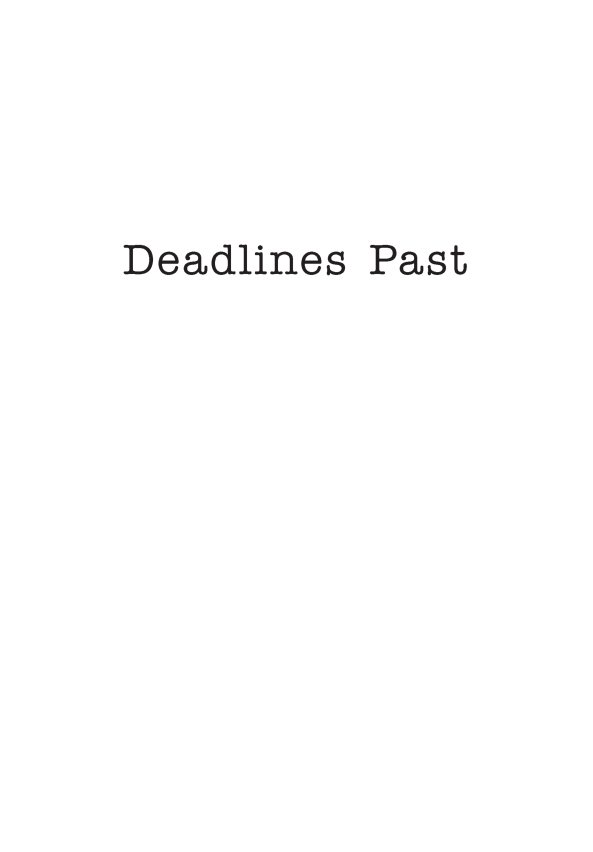
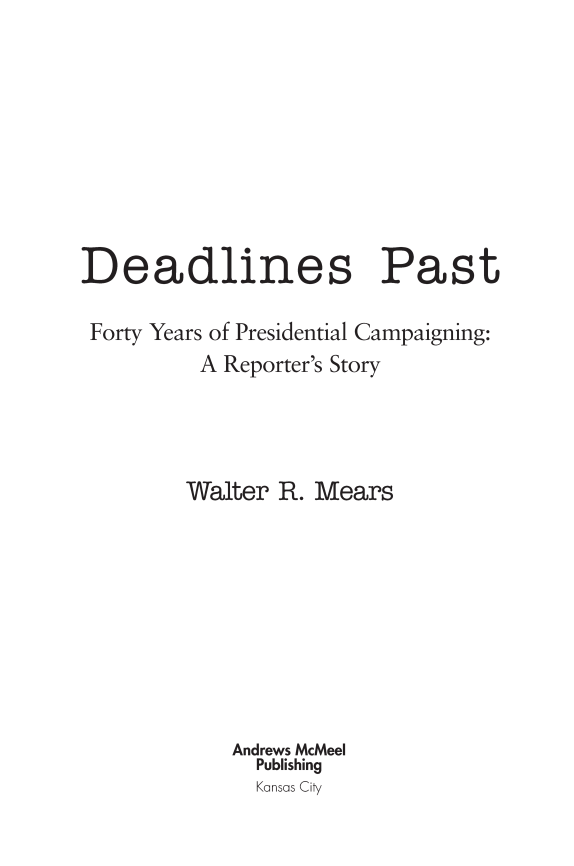
For Stephanie and Susan,
so that they will know where their dad was all those years,
and for Nathaniel, Madeline, Aidan, and Sean.
ACKNOWLEDGMENTS
I am a wire service man, a calling that requires writing news instantly, keeping the copy terse, and keeping yourself out of it. After nearly fifty years of striving for objectivity and avoiding personal judgments, my writing instincts were tuned to the AP wire, not to the pages of a book. Making an author out of a man with those ingrained traits required the patient persuasion of an understanding editor, for which I thank Chris Schillig at Andrews McMeel Publishing. It also required the trust and support of a publisher, in my case John McMeel, whose friendship I treasured long before my deadlines passed. I had an editor at home as well. My wife, Fran, managing editor of Gannett News Service, made my writing better by keeping it down to earth and out of the ether of political jargon. This is a book of memories shared with colleagues and competitors whose names are woven into my experience and into the stories that follow. These experiences are shared in a special way with countless colleagues in the Associated Press, the organization that was my professional home.
My thanks to all of you. Or, in the shorthand of the wire, TNX.
CONTENTS
FOREWORD
I lived my professional life on deadline, in the relentless rhythm of my wire service, the Associated Press. Report the story, check the facts, write it, deliver it, and get on with the next one. It is a pressurized world and from the day I entered it in 1955, I knew it was where I wanted to be. The Boston bureau was a noisy, cluttered room, the windows so grimy that the view of Washington Street and what was then Newspaper Row was shaded in gray. None of that mattered. Id found my element and my vocation.
The dictionary defines a deadline as a line around a prison that an inmate crosses only at the risk of being instantly shot. To reporters and editors, it is the time when a story must be ready for print to make the next edition. Some writers find the modern usage almost as menacing as the old definition. For them, the clock is a threat. Not for me.
I thrived on deadlines for more than forty-six years. I made my reputation as a man who could write and deliver copy almost instantly. The Associated Press is the worlds oldest, largest and finest newsgathering organization. It is a not-for-profit cooperative. (We joked that the description applied to staff salaries, too. In the news business, gripes and wisecracks are part of the language.) The AP is owned by the newspapers it serves, meaning almost every daily newspaper in America. AP people work twenty-four hours a day to deliver them the news as it unfolds, accurately, objectively, and immediately. Somewhere, an AP newspaper is sending an edition to press or a broadcaster is going on the air, which means they need the news on the wire right now. On deadline.
I reported on political campaigns from 1960 until 2000, watching the rise of television and technology, the creation of a new class of permanent political operators for hire, and the last days of the kingmakers as reformers tried to replace smoke-filled with smoke-free rooms. I came to campaign coverage just as the old ways were yielding to the new and covered elections for forty years, reporting on eleven presidential campaigns as the way candidates seek the White House was transformed. Still, despite all the arts of the pollsters and image-makers, the bottom line is still a ballot to be cast for one candidate or another. For a reporter, the task is to get past the managers and spinners to assess the strengths the candidates claim as well as the failures and flaws they try to conceal. Again, on deadline.
The pages that follow are about those eleven presidential campaigns: the changes I saw, the characters I covered, the things I heard, the impressions they left. Stories retold, this time off deadline. When I closed my career after the 2001 presidential inauguration, my deadlines were past.
To recall and write about those campaigns I went to the files of the AP, reading my old stories and those of my colleagues on the cracking, yellow teletype paper of another era, the now antique chronicle of my first twenty years as a political reporter. To find the copy for the next twenty, I could type a command into my computer and call up stories from the electronic archives. It was much more efficient, but to me, less engaging than rummaging through the paper files of the time when teletypes and typewriters were the tools of the trade. They were slow and they clattered, but the din was music to me.
Over all those forty years, I scribbled notes in a personal shorthand even I had trouble decoding a week later. It made no difference, because I didnt save the notebooks. It did not occur to me that what Id written there could one day be a valuable resource, and if I could pass one lesson on to todays reporters it would be: Save the notes and when the days work is over, take ten minutes to jot down the things that didnt make it into the storythe oddities, inside stuff, impressions, and descriptions. It can be a treasury. I wish I had done it back when the only cost would have been a few minutes less time unwinding at the hotel bar at the end of a campaign day.
To reflect about the campaigns of my career, I had to put myself back into them, to relive what I experienced in 1960 or 1980. The work of three old friends and companions on the political road helped me to do it. First, the landmark campaign books of the late Theodore H. White, who reinvented political reporting with his The Making of the President books. He wrote those books on the campaigns of 1960, 1964, 1968, and 1972, and they are matchless for his reporting and storytelling. Spend a day with Teddy and you are back in those times. Any political reporter who has not read them all is not fully educated. Theres a letter from White in the 1972 book he sent me. He wrote I wish that we didnt usually meet only in the turbulence of a campaign every four years when both of us are under the whip of deadlines and the pressure of events. We met again when I reread his books as I tried to immerse myself in the politics of those campaigns.
Jules Witcover and Jack Germond, my contemporaries, were two of the guys on the bus with me all those years and they wrote the history of each campaign from 1976 until 1992. I read their books again as well, to stir my own memories of what wed witnessed together. Jack and Jules were matchless political reporters, then partners as columnists.
What I have written is not a history but, rather, a personal account of the campaigns of my professional life. The events of those campaigns are the framework for my memories of them. As I recount them now, I am off deadline. Past deadline.
Walter R. Mears
Arlington, Virginia |
CHAPTER
ONE
First Impressions: The 1960 Campaign
I t was a quiet autumn afternoon in the elegant lobby of the Waldorf-Astoria Hotel in New York, hushed as a library reading room. The only stir was on the side toward Park Avenue, where a cluster of men lounged on a couch and upholstered chairs conversing, sometimes arguing, sometimes a bit loudly. Theywewere reporters, doing what reporters do much of their time. We were waiting, some reading newspapers, one savvy enough to have brought a book. The rest were swapping stories, talking about the 1960 presidential campaign we were assigned to cover, boasting of past exploits, debating who got which story first, who spotted the trend, who wrote it best. I was listening, having no exploits to boast. At twenty-five and new to it all, I was awed to be there, sitting with men I had known only as bylines in their newspapers until I was suddenly sent to join them and report on the campaign for the Associated Press.
Next page
